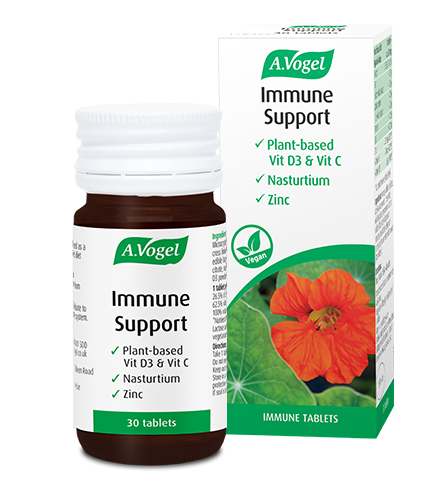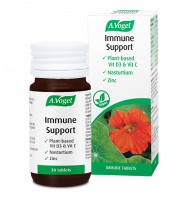Why do we need vitamin C? Why can it help with energy?
Energy production is, unsurprisingly, a complex matter. It involves countless chemical interactions in the body and many nutrients play their part, including iron, magnesium, calcium and CoQ10 (sounds like a vehicle velocity attribute)...the list can go on a bit and it can be hard to know where to start.
Vitamin C is one that is super-important, I think, because it's so easy to fall short of. The body can't make it, we aren't great at storing it and, unless we get a daily supply, there isn't going to be enough to rev us up and make us feel bouncy. Studies have shown that many people in the UK aren't getting enough1. This is a bit worrying given that the daily recommended minimum amount in the UK is only 40mg. This level is very low. It helps to maintain optimal health, any lower and we risk scurvy!
Scurvy is a disease that develops if vitamin C levels are low enough to make you ill. It causes a weakening of connective tissue holding the body together. In very extreme cases, the gums bleed and teeth pop out. Skin bruises easily and the joints ache. It sounds exhausting.
Vitamin C's biggest role is as an antioxidant. A what? This means that it can protect the body from damage. Consider the wear and tear that our body has to put up with. We are constantly doing things that can potentially break it - falling, banging it, pouring in alcohol, chip fat, making it stay up too late. Vitamin C is one of the nutrients that can help repair and protect us. Like a vitamin bandage or helmet. We can avoid feeling run down or tired by keeping the body in good working order.
The adrenal glands need lots of vitamin C. They are the glands that are responsible for getting us out of sticky situations. If we are under threat, they flood the body with stress hormones like adrenaline and cortisol. This acts like an emergency turbo boost, providing instant energy to allow us to run away from monsters. In reality, it is more likely to be fuelling a red face while you try to parallel-park on a narrow busy street. This is my own personal shame and most stressful scenario. For others, it may be a fight with a partner or simply trying to get everyone out the door in the morning. Most of us get stressed from time to time. When that happens, our adrenal glands need plenty of vitamin C.
Another thing we need vitamin C for is iron absorption. Iron is a mineral that is necessary for red blood cells, the little fellas that make our blood red. Their job is to carry oxygen that we breathe around the body. Anaemia is a form of malnutrition caused by low iron, and its biggest symptom is exhaustion. Plant foods like beans and green leafy vegetables are great sources of iron but you need vitamin C to unlock the iron in these foods. Vegetarians and vegans, in particular, need to get plenty of vitamin C as all of the iron in their diet comes from plant food sources.
Vitamin C does much more, as it tends to be a team player or what is known as a co-factor. It helps many different functions of the body work. When we run low, it can affect immunity, ageing, collagen production and wound healing.
My Self-Care Tip: Be your own detective, find out why you are tired
Many of us feel tired and we may not know why. In this video, I give my suggestion on how you might find the answers that will help you fight fatigue. There can be some very obvious reasons and some very simple solutions.
How do I know if I am getting enough vitamin C?
Consider a vitamin C top-up, if:
- You are a smoker
- You are ill with a respiratory infection
- You are recovering from illness
- You are an older person
- You are not eating your minimum of five a day fruit and vegetables
- You feel tired
- You have low iron levels or a history of low iron
- You have digestive issues that may impair your ability to absorb nutrients well
- You are very active and busy
- You are feeling physically or mentally stressed
- You are vegetarian or vegan
Where do I find vitamin C?
It's really easy to get more vitamin C in your diet. Fruit and vegetables are good sources, especially citrus, berries, brussels sprouts, broccoli, and even potatoes. However, what can affect vitamin C levels in food is their age. If your potato or lemon has been hanging around for too long, the vitamin C may have been damaged. It's also sensitive to heat, so cooking can remove vitamin C from food.
So, the fresher the better. Frozen vegetables and fruit are good sources. Farm fresh local veg and fruit are the best if you can source them.
Getting your five a day will help keep your vitamin C levels up. This can benefit your energy levels and help protect your body from wear and tear. You don't even have to cook, just peel an orange or eat some strawberries or a kiwi. Sneak some frozen peas out of the packet - yum.
If you do need a supplement, A.Vogel's Nature-C is wonderful. The fruit that we use are freeze-dried. This is a brilliant preservation method that keeps all the vitamin C and the amazing flavours intact. Natural, plant-based supplements like this are very easily absorbed. Their low dose is all that is necessary because of this. They are different from the high dose alternatives made from chemically synthetic ascorbic acid.
A.Vogel Immune Support Tablets with Vitamin D, Vitamin C and Zinc, 30 tablets
£13.99 (30 tablets) In Stock






 Looking to support your immune system? Well, look no further!
Looking to support your immune system? Well, look no further!

